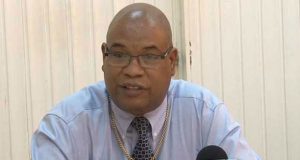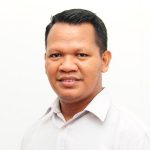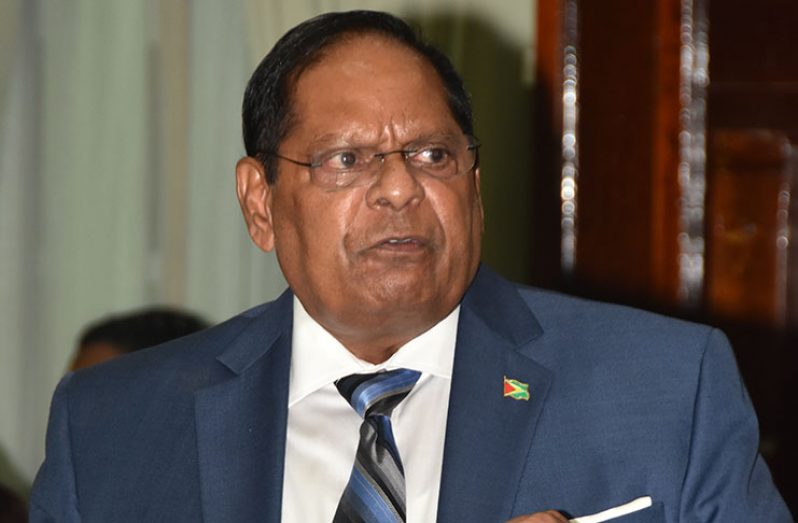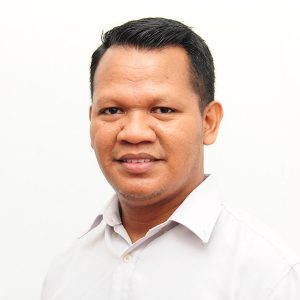–reduces fees, opens up zones
AMENDMENTS to the Broadcasting Act, “are in no way an impediment on the freedom of the media”, Prime Minister Moses Nagamootoo has said.
At the same time the leader of government affairs in Parliament told the National Assembly that the amendments are intended to “strip the law” , that is, the Broadcasting Act 2011 , of “uncertainty”, as well as open-ended arrangements that were “oppressive” to operators.
The prime minister made the pronouncements late on Thursday night when the Broadcasting Amendment Bill 2017 was read for a second time.
He told the National Assembly that the amendments to the law are meant to give operators choices of how to conduct their operations as viable businesses. The operating fees have been reduced, a move which allows broadcasters to operate in various zones.
“This is as I said a progressive measure. A revolutionary measure to take forward the broadcasting in Guyana,” he noted. He said it will ensure that not only the physical facilitation is done by way of the Guyana National Broadcasting Authority (GNBA) for how broadcasting should be done, but according to the prime minister, there should be guide as to the content of broadcasting that carries public information content that is stripped of appeal to racism.
The prime minister reminded parliamentarians that at the opening of the 11th Parliament, President David Granger during an address to the National Assembly outlined the Legislative Agenda of the APNU+AFC Coalition government.
He said the Broadcasting Amendment Bill was included on the agenda and it was envisaged to allow greater independence to the Broadcasting Authority and to ensure standards of fairness, balance and accuracy on matters of public interest.
“The bill that was to be amended was the Broadcasting Act,” he said.
The prime minister, who is subject minister, noted that then President Bharrat Jagdeo on September 27, 2011 assented to the Broadcasting Act 2011, which he termed the “Jagdeo Act” and according to him, it provides for the making of subsidiary legislation.
He outlined the provisions for such amendments, noting that in Section 48:1 of the Act, that subject to the other provisions, the minister may, after consultation with the board or the body responsible for frequency management or both, as appropriate make subsidiary legislation for the better carrying out of the provisions of the legislation.
Under the amended legislation, all broadcasting agencies will be mandated to broadcast public services programmes for a total of up to 60 minutes per day between 06:00hrs and 22:00hrs free of cost.
GAPS
To this end, the prime minister informed the National Assembly that there were gaps in the 2011 Act and these include the provision of “private, public and community broadcasting”; however, he said that there have been no regulations that provide for these classes of broadcasting licenses.
He informed the National Assembly that the law passed in 2011 states that the GNBA would recommend to the subject minister, legislation or changes to the exciting broadcast legislation in the light of new developments, technologies, public polices and international policies.

More importantly, he said that the law states that the authority shall require licensees to carry information on any programme issued by the Civil Defense Commission (CDC), the Guyana Police Force (GPF), the Guyana Fire Service (GFS), or health services and certain other programmes, such as public information, which are deemed appropriate and as necessary as an emergency or natural disaster as a public service at no cost.
“They were just stated as an intention so the act had to be amended to provide for this to come about and also in this bill, it gives very wide and sweeping powers to the broadcasting authority to amend the conditions for the issuance of a license to a broadcaster,” the prime minister noted.
He said too that such powers included the ability to suspend or to revoke a license.
“So in this Bill of 2011, it was the GNBA that was vested with powers to recommend changes to the law itself and to require licensees to carry license to information issued by Civic Defense Commission,” he noted.
The prime minister read that section of the 2011 Act, noting that it was made reference to in the public “as if it has been an invention.”
Prime Minister Nagamootoo reiterated that the “Jagdeo Act” included provisions for public service broadcast, “but sir, like we know what happen with the President’s pension plan, it had no cap.”
He noted that the 2011 legislation spelt that there could be any amount of percentages, any amount of time to be arrogated by the State by what it considered public service broadcast.
LEND CERTAINTY
“So we decided in this government that we would lend clarity to the law; and we could lend certainly the law by freeing up broadcasters from being held hostage to a law that says that you have to give public broadcasting time for any undefined period,” he told the National Assembly.
Opposition Member of Parliament (MP), Juan Edghill, told the National Assembly that the amendments are interfering with the rights of broadcasters.
He said that with the passage of the amendments, the broadcasters would not be applying for a continuum of their license, which he noted is one of several “grey areas”.
However, Prime Minister Nagamootoo told the National Assembly that the amendments are of “tremendous benefit” to the operators of radio and TV in Guyana, to all broadcasters.
Once the amended legislation is assented to by President Granger, TV and radio broadcasters will be mandated to reapply for their licenses within 30 days of the commencement of the new legislation and provide 60 minutes of public service programmes every day at no charge.
According to the new legislation, failure to apply for the license within the specified timeframe will result in the broadcasting service coming to an immediate halt. The same will be for those applicants whose applications were rejected.
“A person who… continues to carry on a broadcasting service after the expiry of time specified without applying for a licence or where he has applied for a licence within the time specified but his/her application for a licence has been rejected, commits an offence,” the Broadcast (Amendment) Bill states.
PENALTIES
Defaulters would be fined $1M and imprisonment for one year. The proposed legislation calls for the seizure of equipment relative to the television and radio broadcasters.
“All machinery and equipment used, or which can be used, for broadcasting and owned by or in the possession of, the person concerned is liable to be forfeited; but property not owned by such person shall not be forfeited unless the court is satisfied that the owner of the property knew or ought to have, with reasonable diligence, known that the person convicted had no license to carry on broadcasting service,” the bill states.
Operators or potential operators who currently have pending applications for broadcasting service licences will also be mandated to repay following the enforcement of the Act. The Broadcasting Regulations 2014 will also be revoked once the Act has been enforced.
The amended legislation introduces three classes of broadcasting services, namely: commercial, non-commercial and community classes and three types of broadcasting zones – primary, secondary and tertiary.
The primary zone comprises the municipality of Georgetown, Region Three up to the Essequibo River, all of Region Four and Region Five east of Region Four to the Abary River. Additionally, there are four (4) Secondary zones with zone one covering all of Regions One and Two and the Essequibo Islands being part of Region Three.
Secondary zone 2 includes all of Bartica, while Secondary zone 3 covers all of Region Six, including New Amsterdam and part of Region Five, west of New Amsterdam to the Abary River. The fourth and final Secondary zone includes all of Region 10.
Meanwhile, the Tertiary zones are all of Region Nine, including Lethem; all of Region Eight, including Mahdia and Region Seven, excluding Bartica. In the Primary zone, the base fee has been set at $1.2M for TV and cable operators, while radio operators will continue to pay $2.5M.
In the Secondary zone, the fee has been set at $600, 000 or 3.5 per cent of gross revenue of the preceding year, whichever is greater for TV and cable operators, while radio operators will be $1.25M.
In the Tertiary zone, the fee has been set at $300, 000 for TV and cable providers and $625,000 for radio operators. Radio and TV stations providing community broadcasting services will only be charged a fee of $150, 000. The Broadcast (Amendment) Bill provides for public service programmes, the prohibition of programmes containing hate speech, while simultaneously addressing an international agreement for broadcasting any channel or programme as part of the local service.
In the final months leading up to the November 2011 general elections, Jagdeo distributed a number of radio licences and broadcasting frequencies to mainly friends and supporters of the then governing PPP/C.
At the time several persons and groups heavily criticised the move citing bias, minus any criteria, while others noted that established media houses had also applied for radio licenses for several years, but were not favoured by Jagdeo. There were subsequent calls for the licences to be revoked.



.jpg)










